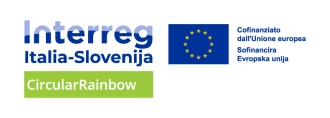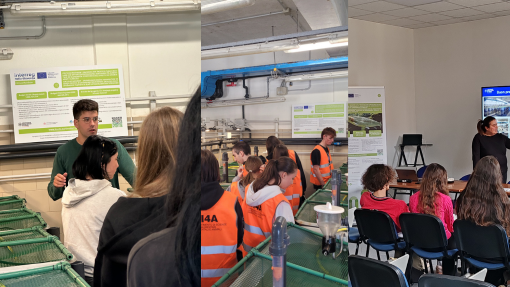In April and May (14/04, 05/05, 19/05), researchers and technicians from the University of Udine welcomed 56 high school students from across the Friuli Venezia Giulia region, as part of the PCTO – School-to-Work Transition Programmes (Percorsi per le Competenze Trasversali e per l'Orientamento).
Participating schools included:
ISIS Manzini, Istituto A. Malignani, IPA S. Sabbatini, Liceo Scientifico Marinelli, Liceo Classico Stellini, Liceo Scientifico Copernico, Liceo Scientifico Scienze Applicate Linussio, Liceo Scientifico Scienze Applicate Pujati, and IIS Il Tagliamento.
During these training days, the students had the opportunity to:
• visit the A. Servadei company headquarters in Pagnacco,
• explore topics related to the Circular Rainbow project,
• tour the RAS (Recirculating Aquaculture System) facility, recently upgraded with Interreg Italy–Slovenia funding.
The PCTO programme is a valuable opportunity to combine classroom education with hands-on experience in real or simulated working environments. These activities are mandatory for upper secondary school students and are designed to develop practical skills and support their transition into the job market.
The main goals of the PCTO include:
• Reinforcing academic knowledge: through direct experience, students can apply what they've learned in class and deepen their understanding of specific subjects.
• Developing soft skills: such as teamwork, communication, problem-solving, and adaptability.
• Supporting future career choices: real-world exposure helps students explore various professional paths, discover their strengths, and make informed decisions about their academic and career futures.
During the sessions, our researchers presented various professional roles in the aquaculture sector, already introduced at the Interreg Go-Youth Event! held on March 26 in Gorizia, and explained potential academic pathways to pursue these careers.
Key topics discussed included:
• the role of the circular economy in aquaculture,
• the impact of climate change on fisheries,
• the importance of responsible consumption of farmed fish and its quality,
• the operation and management of a RAS facility, with a focus on fish monitoring and welfare.
The visit concluded with a guided tour of the aquaculture plant, where students observed first-hand the innovative technologies and practices being implemented.

